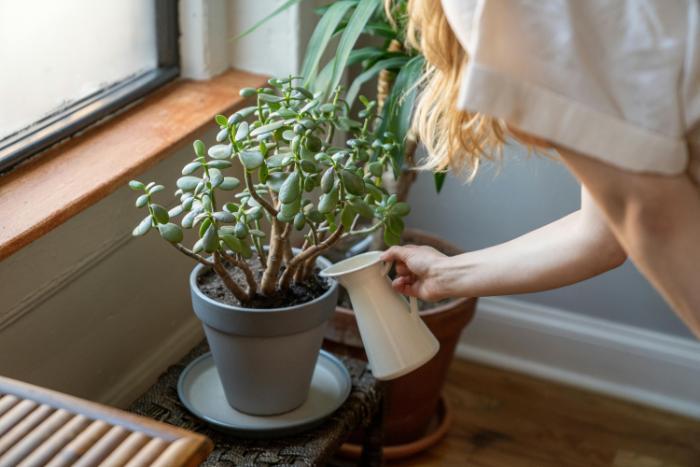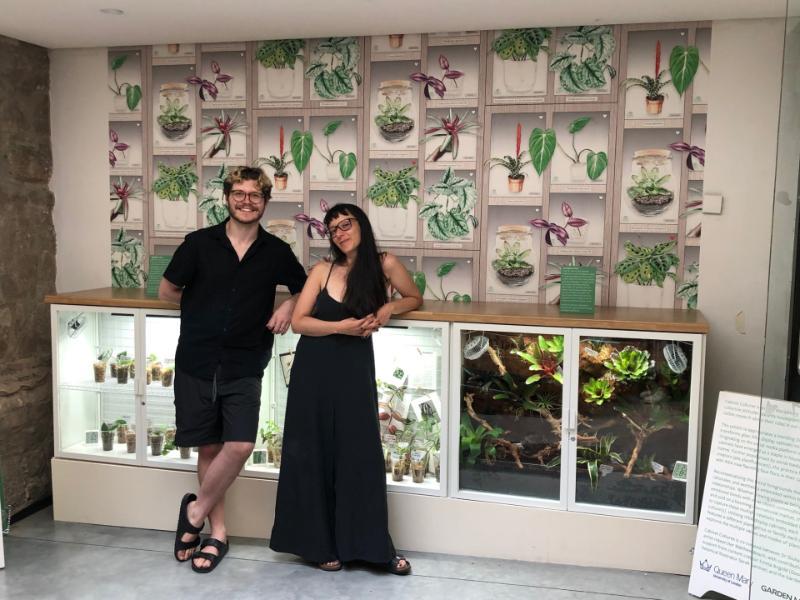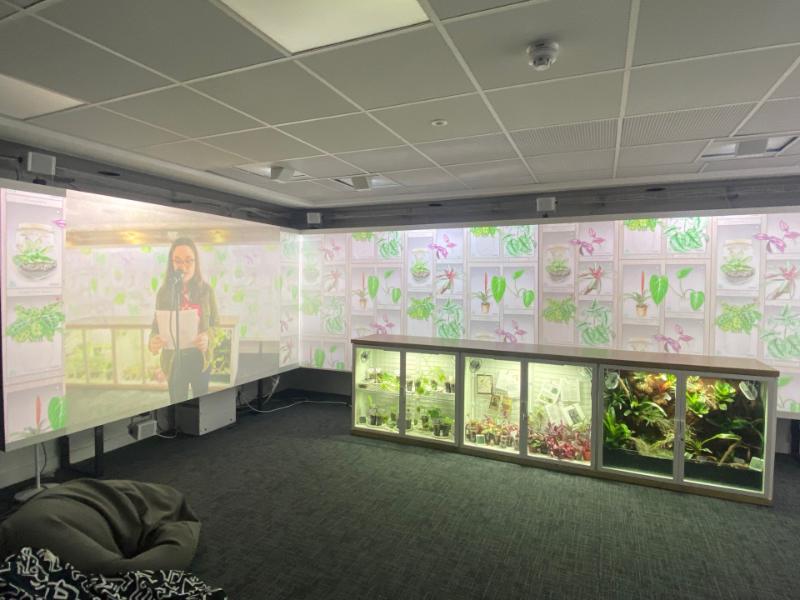
Houseplant study forges fresh connections between people and nature
Houseplant study forges fresh connections between people and nature
At a glance
-
Many city-dwellers have limited opportunities to connect with plants and nature: one fifth of Londoners have no access to a garden.
-
Sociology research at Queen Mary University of London revealed tight bonds were formed between people and their houseplants during the Covid-19 pandemic.
-
The research led to a series of popular plant-themed public events and educational resources, designed in partnership with London museums and educational institutions.
-
The unique content extends partners’ reach into London’s communities – boosting one organisation’s membership by 60%.
-
Houseplants provide an accessible starting point for people to re-assess the role of nature in our society.
Exploring the social and emotional role of houseplants
Houseplants have surged in popularity in recent years, especially amongst younger generations and during the Covid-19 pandemic. UK garden centres reported 50% more houseplant sales in 2021 than in 2019.
Although an increasing number of studies explore our relationship with plants, most focus on plants in gardens and the wild.
Dr Giulia Carabelli (School of Politics and International Relations) conducted a unique study on the place of houseplants in society. The Covid-19 lockdowns of 2020 and 2021 inspired her to explore:
- how people interacted with houseplants to support their wellbeing during the crisis
- how this relationship compelled houseplant owners to recognise that humans are not the only species that matters
The research prompted a series of plant-themed public events and educational material, including a new undergraduate module at Queen Mary. These invite people to reconsider their human-centric vision of the world for a more sustainable future.

Research
Carabelli’s project, Care for Plants, started informally in early 2020 with an Instagram account that asked people to share experiences of life in lockdown with their anxiety-easing houseplants.
This rapidly evolved into a study. Carabelli interviewed people worldwide on their nurturing bonds with houseplants.
Many had come to see their plants as akin to household members. For the first time, they felt non-human beings enriched their social world, a realisation that gives plants a more central role in society.
Follow-up interviews (2020-2022) confirmed effects beyond lockdown. Participants reported a heightened interest in plants more generally, including those they saw outdoors.

Strengthening cultural programmes with inclusive events
Together with Matthew Beach (School of Geography), Carabelli has helped cultural institutions develop plant-themed events to fuel public interest in nature. Inspired by her research, the events emphasise plants’ social importance.
In 2024, the team helped re-launch the South London Botanical Institute with 5 public talks and workshops. All events were fully booked within 48 hours of their announcement. They triggered a 60% increase in the Institute’s membership rates and helped it recruit five new volunteers.
In 2023, the team created an artistic houseplant exhibition, Cabinet Cultures, for the Gardening Museum, London.
Houseplants can provide a more inclusive subject for public events than garden plants or wild plants. One in five of Londoners have no access to a garden (the UK average is one in eight). Across England, Black people are nearly four times less likely than White people to have access to outdoor space at home (ONS, 2020).
Enriching education for sustainability in schools and universities
Carabelli’s research provides a fresh focal point and perspective for educators, in tune with modern interests in plants and sustainability.
In 2023, she introduced an undergraduate module in Queen Mary’s School of Politics and International Relations, More than Human Politics. The module explores the contribution of non-humans (including plants) to politics, society and the economy, and supports the University’s commitment to embed sustainability in the curriculum.
Students grow houseplants and allotment plants as part of their studies. Already, they report potential career-enhancing benefits of the module, referencing it in job interviews when questioned about sustainability.
Carabelli has also created primary school resources in partnership with the Gardening Museum. In 2023, she led a workshop for primary school teachers that shared how to:
- create houseplant displays for classrooms
- expand class-based discussions, to move beyond plants’ biological features and talk about their social contributions too
New perspectives for a more sustainable future
An environmentally sustainable future depends on humans moving away from a self-centred view of the world, towards one that respects other species as equally integral to society.
Carabelli’s research showed how this view developed for houseplant owners in lockdown. Through the public events and educational content (see above), she aims to foster this vision among more people.
Houseplants provide an unintimidating means of approaching environmental crises: “people often feel overwhelmed by environmental catastrophes, like the climate crisis, that the problem is too big for them to deal with,” Carabelli explains.
“But my work starts with something very small, houseplants. It shows there is something that we can do and helps people realise what it means for species to collaborate with each other.”
Key takeaways
- Houseplants offer an inclusive, relatable route into conversations about challenging concepts like climate emergency, biodiversity and ecological citizenship.
- Wellbeing and access to green space often includes caring for houseplants for many people, but their role in human welfare is under-researched and poorly understood.
- Urban interiors are potential sites for greening: living side by side with plants provides many benefits to society and individuals.
